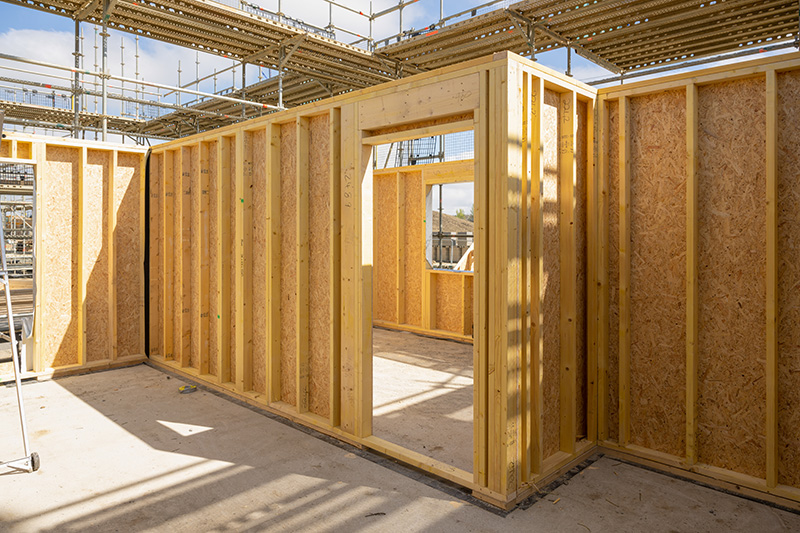
DONALDSON Timber Systems (DTS) has announced it has become the first timber frame manufacturer to offer a published, third party accredited environmental product declaration (EPD) for its product.
As part of a process to cover the full DTS product range, the DTS Alpha system is the first offsite assembled timber frame wall panel in the UK to offer an approved EPD, which communicates the environmental performance of a product over its lifetime.
DTS revealed the Global Warming Potential (GWP) of Alpha is a carbon positive, –1.53kg CO2e, meaning 1.53kg of carbon is stored in every m2 of Alpha external wall. For a typical four-bed detached home built using Alpha, 250kg of carbon is stored in the timber frame elements of the external walls alone.
Valid for five years, the EPD is based on current available and published data for end-of-life assumptions. With advances in the industry over the next five years, along with improved building recycling processes and ongoing DTS investments, the firm said it is expected that performance will be even higher at the next review.
Alpha is the first of 16 base EPDs being worked on by DTS, covering the full range of floor, wall and roof systems.
John Smith, technical director at Donaldson Timber Systems, said, “The only way to achieve the UK target to be zero-carbon by 2050 is to firstly measure, and then reduce the whole-life carbon of buildings, from cradle to grave. The availability of EPDs is an important step in recognising this. Without measuring and reducing embodied carbon, there is a very real risk that the new buildings constructed to new standards in 2026 and beyond won’t achieve true zero carbon, as the embodied carbon in the fabric will never be offset by using even the greenest energy to run the home. This is something we feel strongly about, and one of the reasons we’re investing in this process for all DTS products.”
Alex Goodfellow, CEO of Donaldson Offsite, added, “We always champion the use of offsite timber frame construction as the best way to achieve sustainable building practices and meet net zero targets, so it’s fantastic to have a verified EPD to prove these claims. We’re seeing increasing numbers of customers asking for EPDs, as they look to meet carbon goals, and need to be able to prove that the products they specify are making a difference.”








